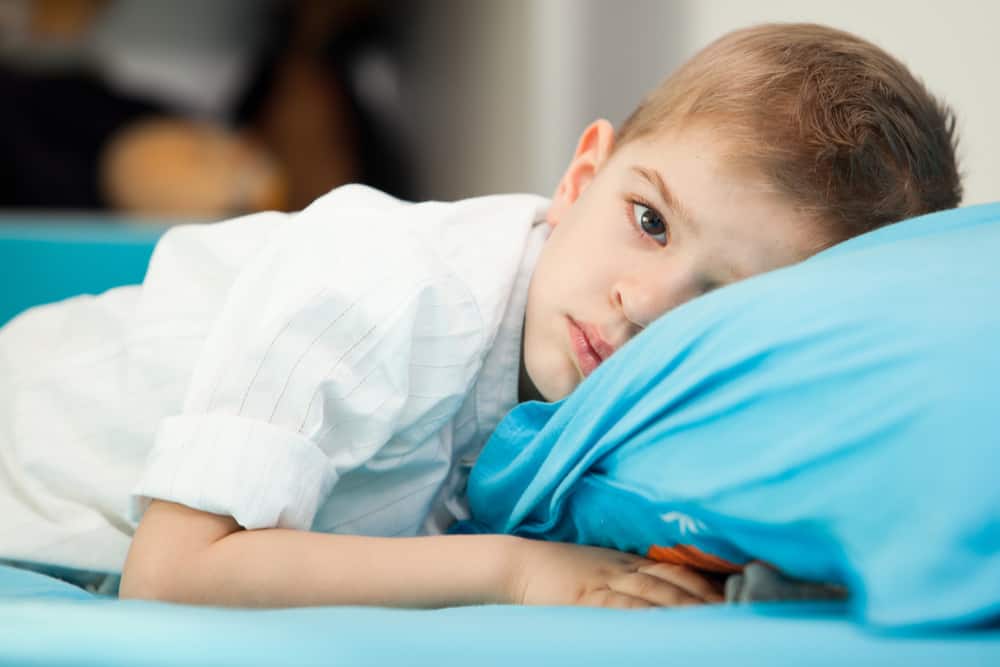Being tired of studying and being tired of the world has become a common phenomenon among teenagers. The Chinese Center for Disease Control and Prevention released a set of survey data: a survey of 9,015 middle school students (mainly 10 to 14 years old) showed that 17.4% of the children had seriously thought about suicide, and 8.2% had even made a suicide plan.
“It’s so boring to live!”, “I want to die so much!”, and “What’s the point of living?”… Children’s world-weary words frighten many parents. Not only in words, many teenagers cannot find the motivation to work hard, are unwilling to study, have no interest in everything around them, and face everything with a negative attitude.
Why do young people and girls who should be full of vitality lose their vitality so early? What complex thoughts are hidden behind the negative world-weariness of teenagers?
The External World-Weariness and Negativity, the Internal Psychological Storm Raging
Teenagers are experiencing the psychological storm of the “four nos”. More and more teenagers have no motivation to learn, no interest in the real world, social inability, and a sense of the worthlessness of life.
Distorted learning, no motivation to learn, and a lot of boredom towards learning.
- Many students with good or even excellent grades believe that entering prestigious universities is to satisfy the expectations of their families and society. They cannot find the meaning of learning and easily become tired of studying.
- Behind the dislike of learning lies the child’s dislike of himself. Adolescence is an important period when self-awareness is highly developed and teenagers form their own self-image. In addition to learning, peer relationships, self-exploration, and the formation of self-identity are their important psychological tasks at this time.
- Distorted learning relies too much on unilateral academic performance factors. Once academic setbacks occur, even a small setback can be a huge wave for children that is enough to defeat them.
- If parents’ expectations for their children are too single and too high, the children will feel that “no matter how hard they try, they cannot meet their parents’ expectations,” deepening their pessimism and disappointment toward themselves.
If you are not interested in the real world, you will self-mutilate or commit suicide if you disconnect from the Internet.
- “He almost jumped off the 10th floor for a mobile phone. Our parents were really scared.” When asked about the child, “My parents never understood, but I just like playing games. That is what drives me to survive, but It’s nothing in their eyes.”
- Behind the dependence on the Internet is the psychological need of teenagers to escape from heavy studies and the real world.
- Ineffective communication between parents and children, a closed heart to their parents, and frustration with real-campus social interactions make teenagers disillusioned with the real world and seek a sense of identity and belonging in the online world. Research also shows that teenagers who have lived in the online world for a long time have gradually reduced their connections with the real world, their social circles have become increasingly closed, and they have become increasingly dependent on the online world, forming a vicious cycle until the online world becomes their survival motivation and existence.
Conflict between social inability and psychological needs.
- The learning of social skills is a very important task in adolescence, but today’s children’s social skills are extremely weak.
- Life is full of studying, and there is a lack of time to get along with peers. Free time is spent more on the Internet, resulting in social isolation. They are very active on the Internet, but in real life, they are taciturn and unwilling to communicate with others, especially since they do not like to participate in campus cultural activities and class group activities.
- Establishing peer relationships and finding a sense of belonging among peers are their urgent psychological needs at this time. However, they cannot communicate with others. They live alone in reality and are afraid of contact and communication with real people, forming autistic social interactions.
- In times of conflict, instead of contacting real people, they choose to pin their emotions on virtual images (such as characters in comics, cartoons, etc.), escaping from the real world even more, and their lives become more “homey”.
The sense of worthlessness and depletion of life comes too early.
- The topic of “hollow syndrome” among teenagers has aroused heated discussions. Anxiety and depression are becoming more and more common among teenagers, and various high-risk behaviors occur frequently among teenagers. This should be a vibrant group of teenagers, but instead, they are shrouded in darkness and unable to discover the meaning of life.
- “I feel like I am a learning machine. When I wake up every morning, various instructions are input from the outside world. The goal is to rank in grades and get into a higher school. Then it starts running non-stop until I collapse.”
- “I can’t find the meaning of life. Why study? Why work hard? Why live?”
- “No matter what I do, I feel very tired. I can’t remember anything. People in the dormitory are so hypocritical. I don’t want to talk to anyone. What’s wrong with me?”
- Children feel pointless and worthless. Although today’s children are well-fed and materially satisfied, they lack mental support, fierce academic competition, complicated peer relationships, and unsupportive family environments. The psychological energy and mental wear and tear of teenagers come too early.
The Deeper Layer behind the Emptiness Is the Lack of Inner Connection
Self-psychology points out that this sense of continuity will make the individual feel a sense of belonging to the human network and ensure the experience of the meaning of life.
The meaning of life comes from a sense of connection with others. For today’s teenagers, a sense of connection is what they lack. Whether it is a connection with peers, a connection with parents, or a connection with the real world, these are all things that are lacking in life.
It is difficult for them to open up to their parents and tell their inner conflicts because they are unable to gain empathy and understanding from their parents and have long been disappointed with their parents; they lack the experience of having fun with their friends, and there is more competition and exclusion among their peers; In real life, they experience constant frustration and tremendous pressure. They can’t find their place, and feel lost and desperate.
When there is a lack of stable and lasting connection between self and object, it is easy to fall into emptiness, disappointment, and depression, with confused self-identity and disillusionment with reality. Teenagers no longer have hope for the future and life.
And when children say those world-weary, negative, and frightening words, it may be their “signal for help”. They use extreme words in the hope that we can see the emotional needs behind them.
How to Deal with a World-Weary Child?
“There is only a thin layer of paper between crisis mentality and crisis behavior.” World-weary children are in a psychological crisis. Rather than forcing them to be optimistic, what they need more is an environment where they are empathically accepted and understood.
When a child mentions that life is boring, what parents can do is:
Listen patiently and understand your child’s true thoughts.
- Some parents are unable to cope with their children’s emotions and emotional needs. When their children show vulnerability, they are eager to deny it and hope that their children can become active. But this also blocks the way for parents to access their children’s hearts.
- If possible, parents should not panic, listen patiently first, and understand their children’s true thoughts. You can first give your child affirmation, “You are starting to think about the meaning of life at such a young age, which means you have grown up”; “Your thinking is meaningful, what triggered your thinking?”.
- Do not deny or prohibit children from talking about this topic. This is a good opportunity for life education and an opportunity for parents to get closer to their children.
A healthy and harmonious parent-child relationship is the best support for children.
- For adolescent children, in addition to love and security, the need for independent space is also increasing.
- Just like a small tree, to grow into a towering tree, it not only needs sunlight and rain but also needs enough growth space to allow it to stretch its trunk and grow dense leaves.
- Parents do not interfere or control their children too much, let them be themselves, let them take charge of their own affairs, and let them take responsibility for themselves and do their things. This can not only stimulate the positive power in children but also bring closer the close relationship between parents and children. As children grasp their own right to speak again and again, their self-power grows, they have a sense of belonging, parents, and meaning, and are more able to live out their lives more energetically.
Carry out family psychological consultation.
- A child’s transition from being weary to being world-weary involves many factors, which are not only related to the child’s growth stage but also to the child’s environment and past growth experiences.
- In addition to individual-level intervention, changes in the family environment can also greatly improve the child’s condition. A good family environment and social support can also provide children with a healthier growth environment. At the same time, it can also help parents relieve anxiety, regain self-confidence, and become the most solid backing for their children’s growth.




